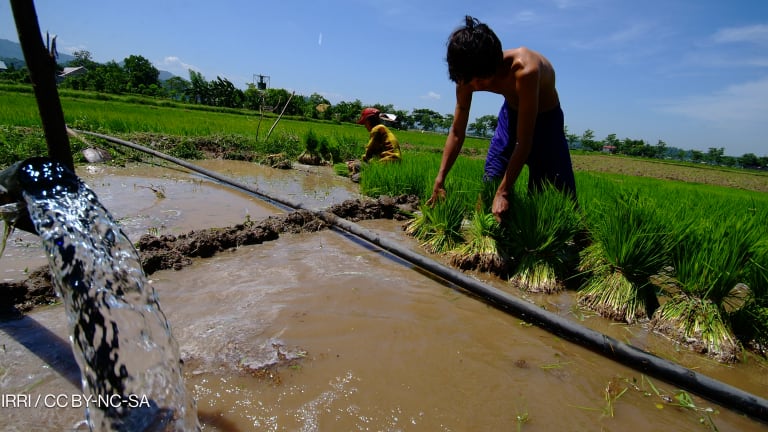Water managers, climate change specialists and population studies experts are going to be increasingly in demand for the continued development and cohabitation of humanity. That's just one of the many lessons from
, to be launched March 16 at the 5th World Water Forum in Istanbul.
The report, "Water in a Changing World," finds that by 2030, nearly two-thirds of the world's 8 billion people may face water shortages. Not drinking water necessarily, but the water required to make and process our food and drink, and for sanitation purposes, will be in short supply. The impact will be unfathomable – dragging down health, food supply and international security.
Water will become an increasingly rare and politicized resource and will likely lead to war.
"As the situation worsens,"
the coordinator of UNESCO's water assessment program, Olcay Unver, "competition can turn into conflict. Managing the competition is very important so that conflict will not arise."
Unver urged greater investment in water infrastructure, management and expertise, and underscored the importance of effective governance and international oversight. The report acknowledges that many countries have passed water management legislation, but explains that most of their reforms have not had any noticeable effect because the key decisions do not take a broader view of the water resource.
"For decisions to be effective, they need to involve decision makers from all sectors, including agriculture, energy, trade and finance, as they all have a decisive impact on water management," the report argues, also stressing the importance of partnerships between governments, the private sector and civil society.
The authors pointed to three primary reasons for our deepening water worries: climate change, with its increasing droughts, floods and major storms; population growth, which is pushing us ever nearer our resource limits; and economic development, which is making ever more people demand ever greater water supplies.
Accepting the increasing precariousness of humanity, the U.N. created a new post this week: assistant secretary-general for disaster reduction. Margareta Wahlstrom, the inaugural appointee,
nations to take steps to mitigate the growing threat and number of disasters worldwide.
Thus, while the near future may not look like the Kevin Costner stinker "
," it will be heading in that general direction. And those who can manage water and other natural resources, cushion the impact of climate change and disaster, and understand and foster the movement of great masses of people will be in greater need than ever before.








